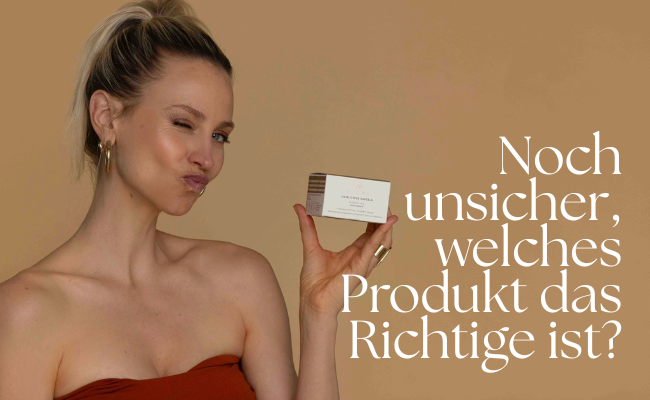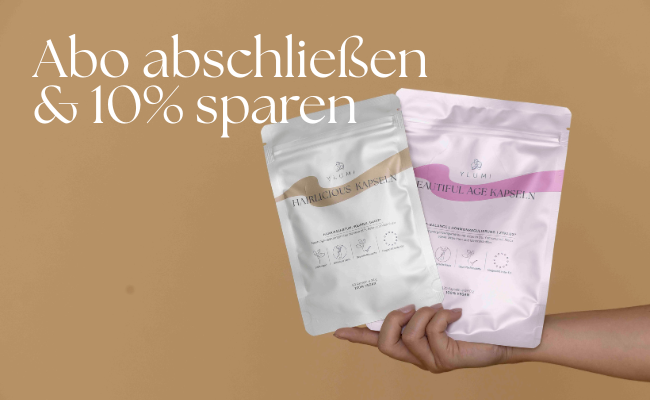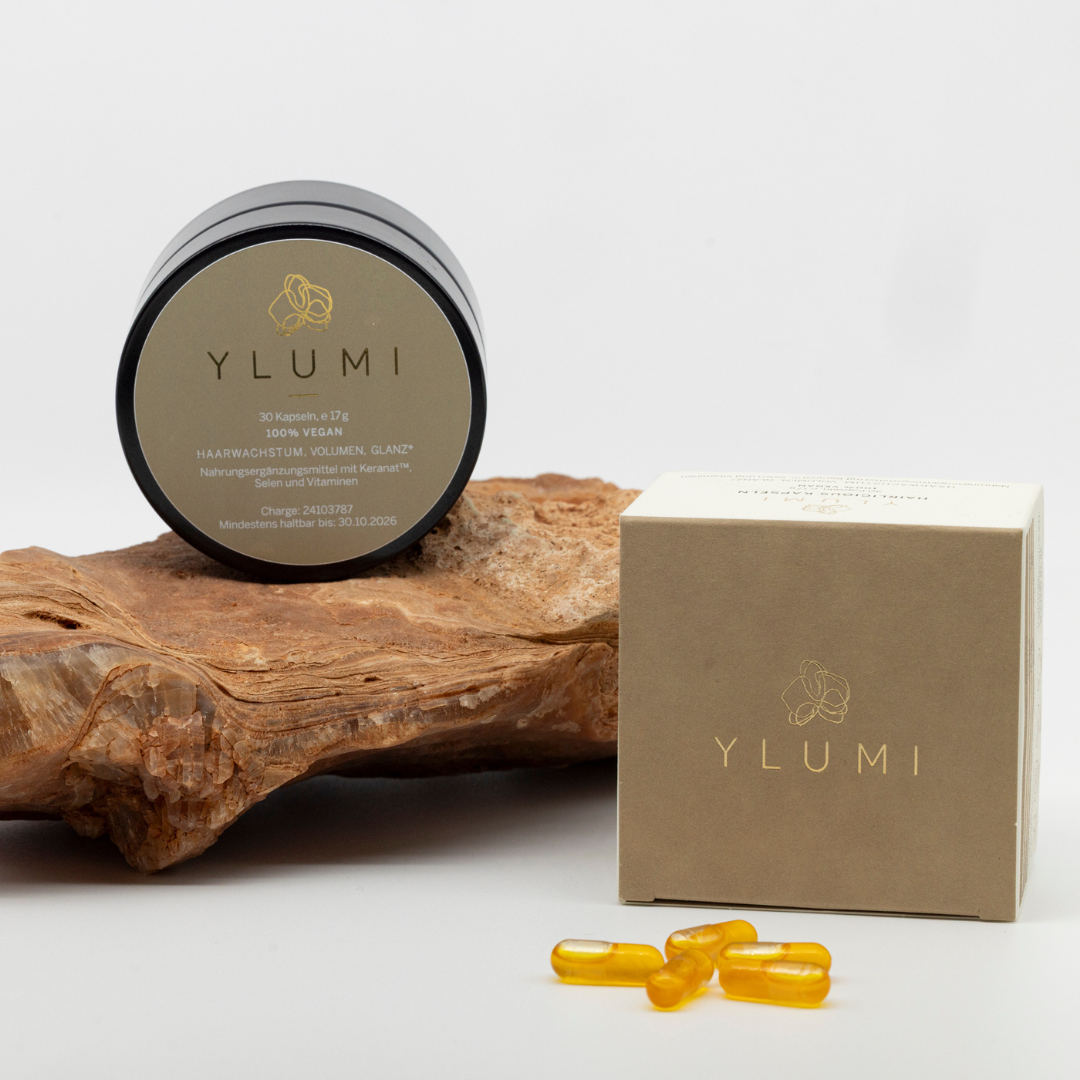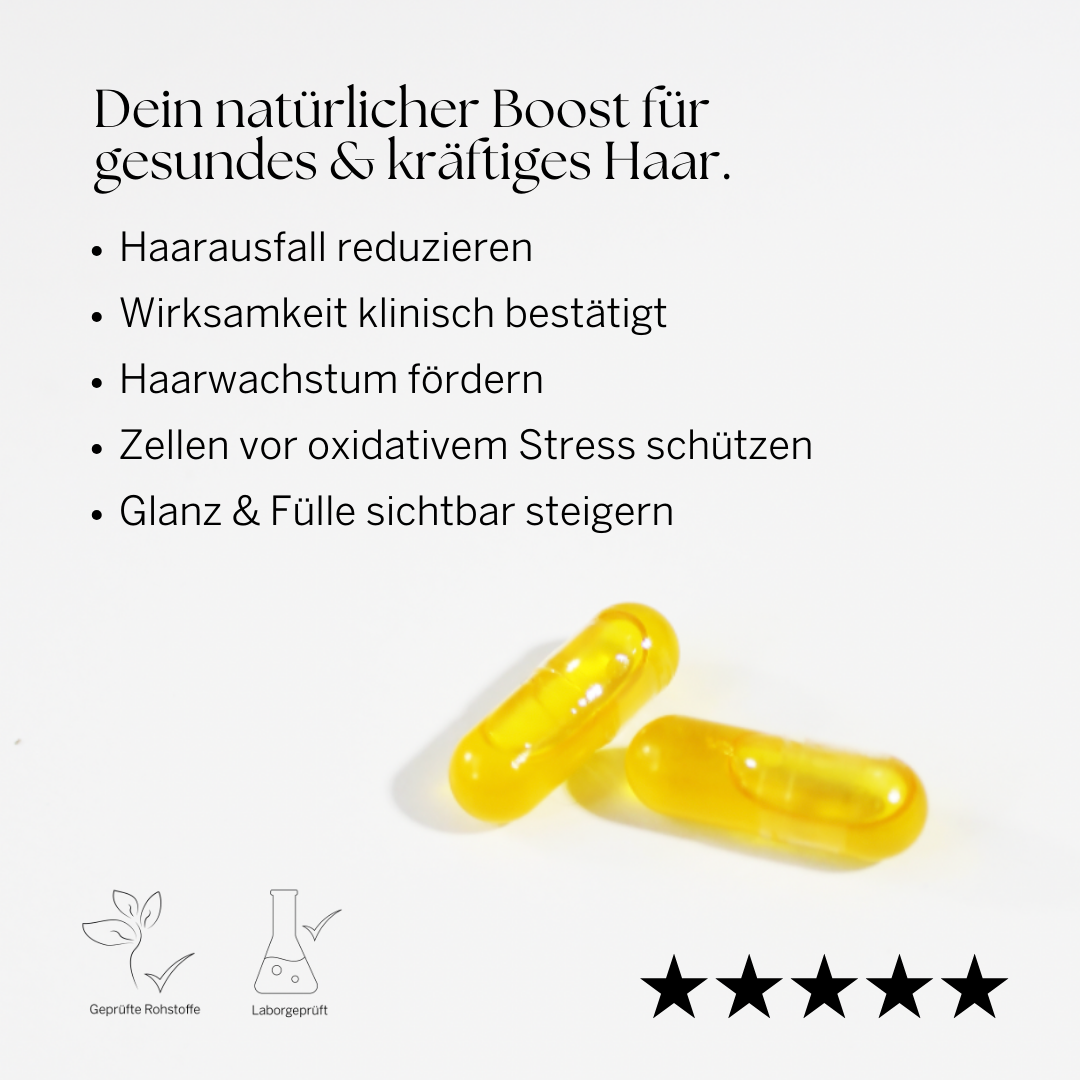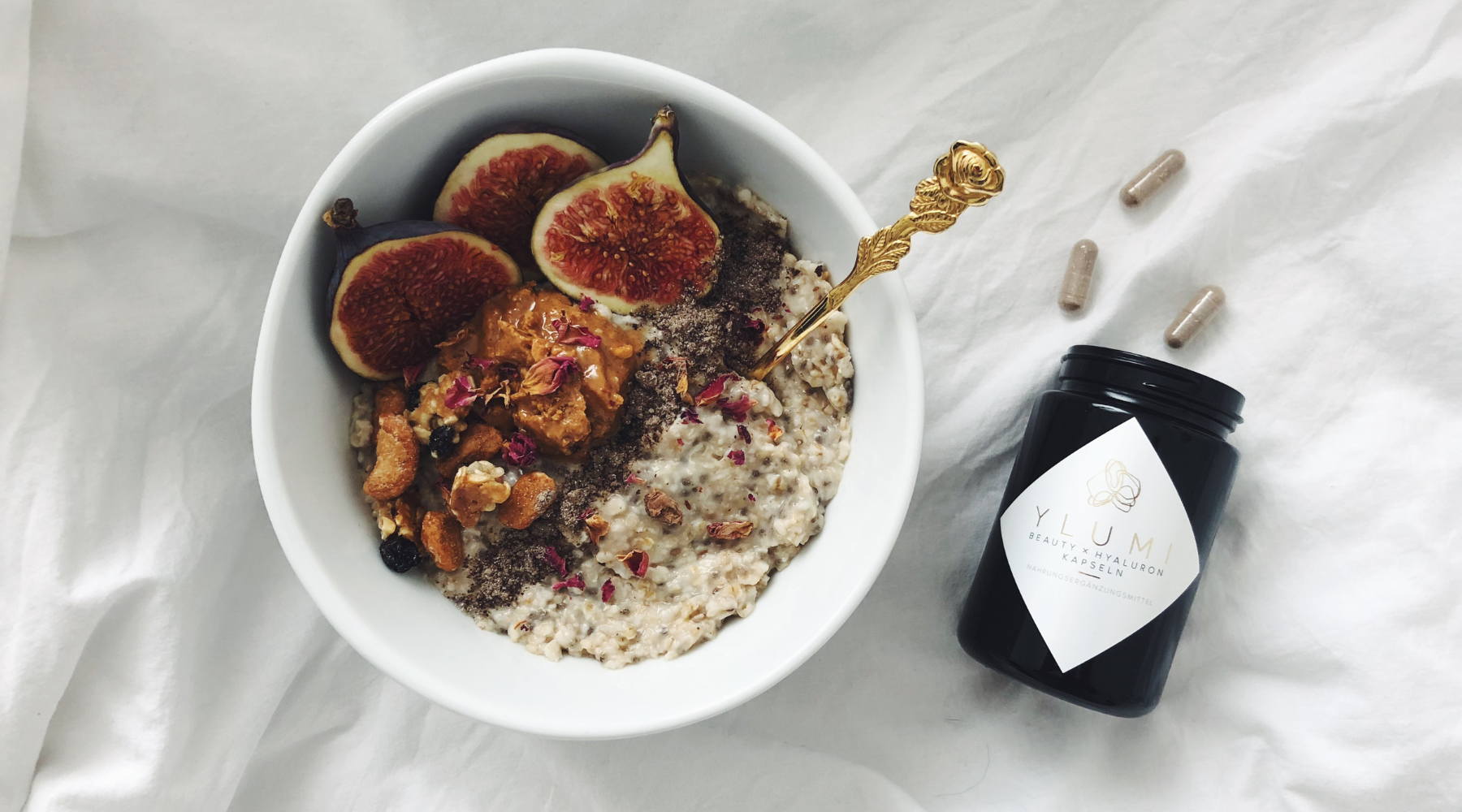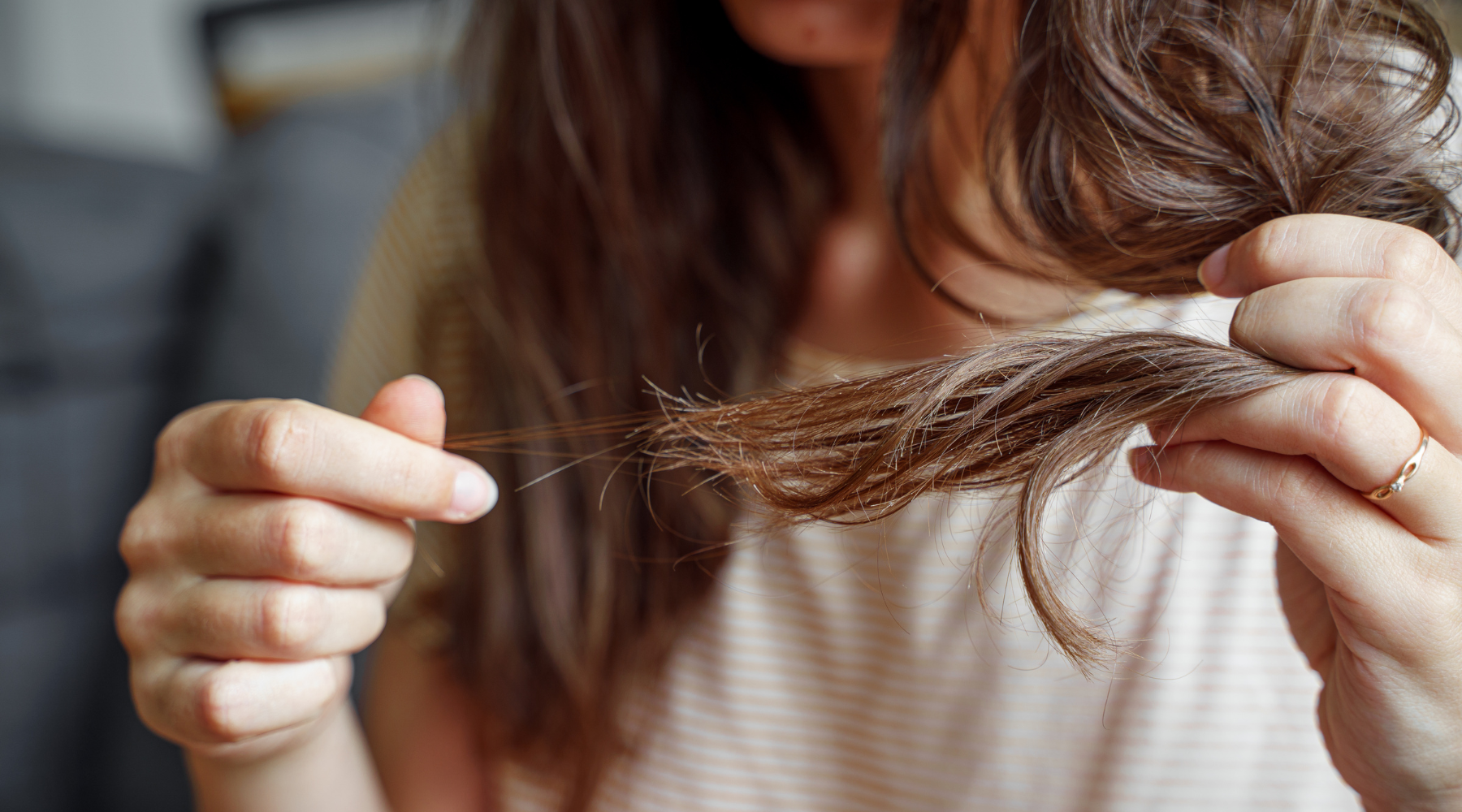
Hair loss after pregnancy: causes and tips
Are you experiencing a period of increased hair loss after giving birth? This so-called postpartum hair loss can be unsettling, but in most cases, it's a normal reaction of the body to the hormonal changes after pregnancy. In this article, we'll explore the causes, the different types of hair loss, and offer effective tips for combating and preventing it. We'd also like to share our personal YLUMI insider tip, which has already brought a smile to the face (and a beautiful mane) to many women after pregnancy.
Causes of hair loss after pregnancy
During pregnancy, estrogen levels in the body rise significantly. This hormone ensures, among other things, that hair stays in the growth phase longer and falls out less frequently, often resulting in more lush hair. After birth, estrogen levels drop again, and many hairs that remained in the growth phase during pregnancy fall out within a few months. This hair loss is also called "telogen effluvium"—temporary hair loss due to hormonal changes.
Other factors that can increase hair loss after pregnancy include:
- Stress from childbirth and the demands of the new life as a mother.
- Nutrient deficiencies, particularly a deficiency of iron, biotin or vitamin D.
- Lack of sleep and exhaustion, which can affect the immune system and hair cycle.
What types of hair loss can be observed after pregnancy?
After pregnancy, two main forms of hair loss occur:
- Telogen effluvium : This is the most common form. In this case, more hair falls out because the hair abruptly enters the resting phase. Hair loss is diffuse, meaning it is spread across the entire scalp.
-
Androgenetic alopecia : In women genetically predisposed to hormonal hair loss, the natural hair loss process may accelerate after pregnancy. This form often manifests as thinning hair at the crown.
When does hair loss occur after pregnancy?
Hair loss typically begins approximately two to four months after birth. At this time, hormone levels are regulating, and hair that remained in the growth phase during pregnancy begins to fall out more rapidly. The hair cycle typically returns to normal after six to twelve months.
Getting hair loss under control after pregnancy
The best tips
Although postpartum hair loss is temporary in most cases, there are steps you can take to reduce it and strengthen your hair:
-
Healthy diet : Eat a balanced diet rich in iron, zinc, biotin, and omega-3 fatty acids. Foods like nuts, seeds, eggs, green leafy vegetables, and fish promote healthy hair growth. Pay special attention to your iron intake .

- Gentle hair care: Use mild shampoos without harsh chemicals and avoid excessive heat styling. Brush your hair gently to avoid damage.
- Additional nutrition: Products like HAIRLICIOUS can help reduce hair loss and promote hair growth. This product contains:
- Bio-Keranat™ (300mg per capsule), a patented ingredient shown in clinical studies to reduce hair loss by up to 50% after just 12 weeks.
- Linseed oil , which provides valuable omega fatty acids to strengthen hair from within.
- Biotin and selenium to maintain healthy hair, as well as vitamin E, which protects cells from oxidative stress.
A clinical study on the effectiveness of Bio-Keranat™ showed a significant reduction in hair loss and visibly improved hair growth after 12 weeks. This makes HAIRLICIOUS an ideal complement for women seeking to manage their post-pregnancy hair loss.
Prevent hair loss
While it's difficult to completely prevent hormonal hair loss, you can promote long-term hair health through a healthy lifestyle and targeted hair care. Here are some preventative measures:
-
Stress management : Practice relaxation techniques such as yoga or meditation to
to reduce stress. -
Regular scalp massages : These promote blood circulation in the scalp and
support hair growth. - Heat protection : Use gentle heat protection products when blow-drying or styling your hair.
Overview of the most frequently asked questions
-
Is hair loss normal after pregnancy?
Yes, postpartum hair loss affects many women and is a natural consequence of hormonal changes after childbirth.
-
How long does hair loss last?
Hair loss begins approximately two to four months after birth and can last six to twelve months.
-
Which vitamins help against hair loss?
Biotin, selenium, vitamin D and iron are important nutrients that
Support hair growth.


-
Can I prevent hair loss completely?
Since hormonal changes are inevitable, hair loss often cannot be completely prevented. However, it can often be mitigated with a healthy diet and hair care routine.
-
What makes HAIRLICIOUS by YLUMI so effective?
HAIRLICIOUS contains, among other things, clinically proven ingredients such as Bio-Keranat™, which are proven to significantly reduce hair loss and promote hair growth.
Conclusion
Hair loss after pregnancy is a natural and temporary reaction of the body. With proper care, a balanced diet, and the support of high-quality supplements, you can help your hair recover faster and grow stronger.
Do you have any questions?
Contact our expert Finja for comprehensive, individual advice .

